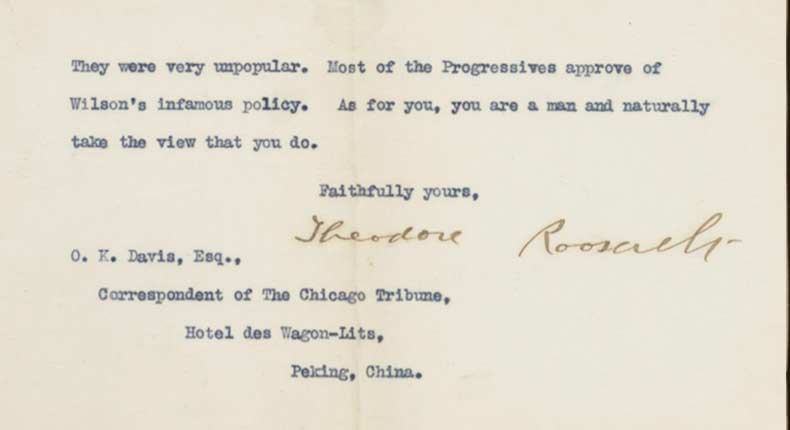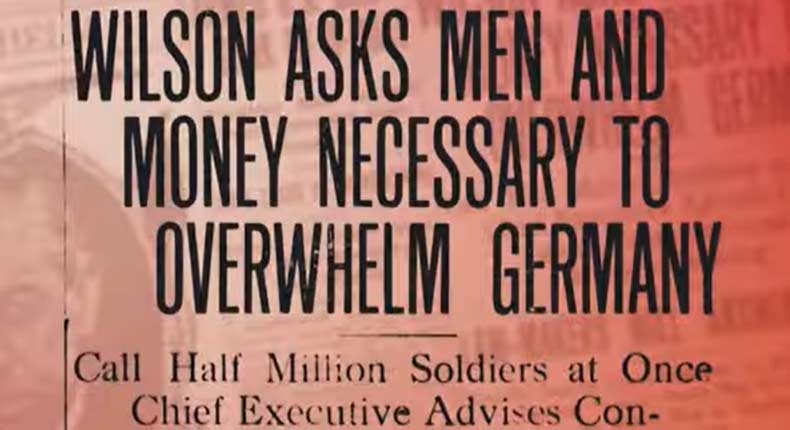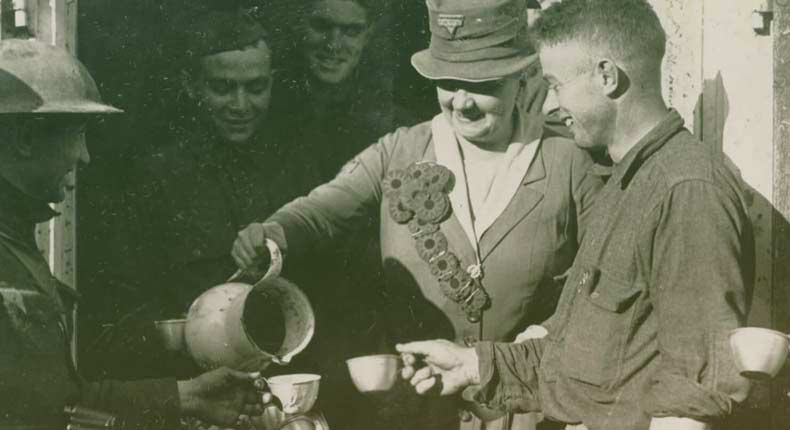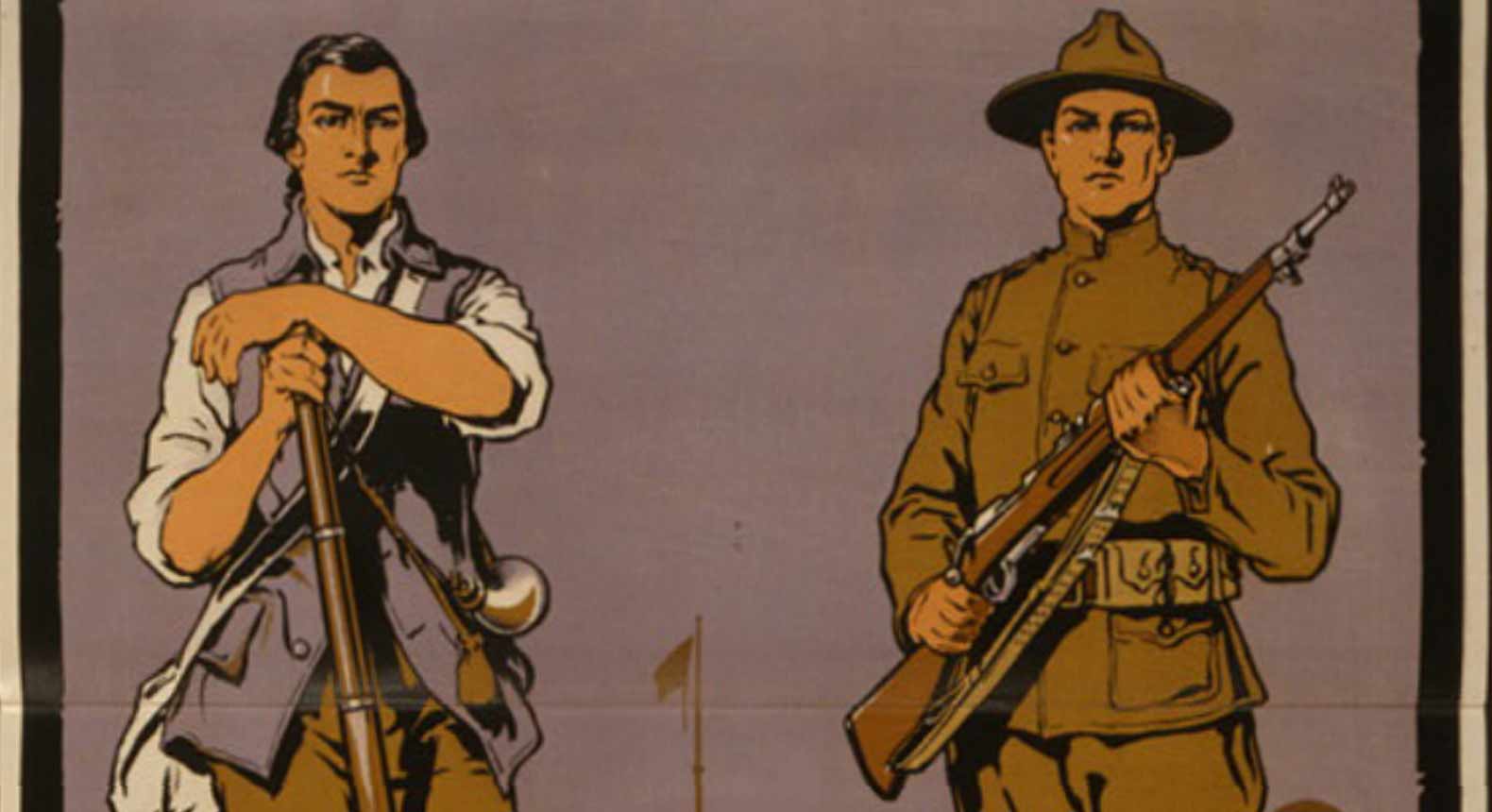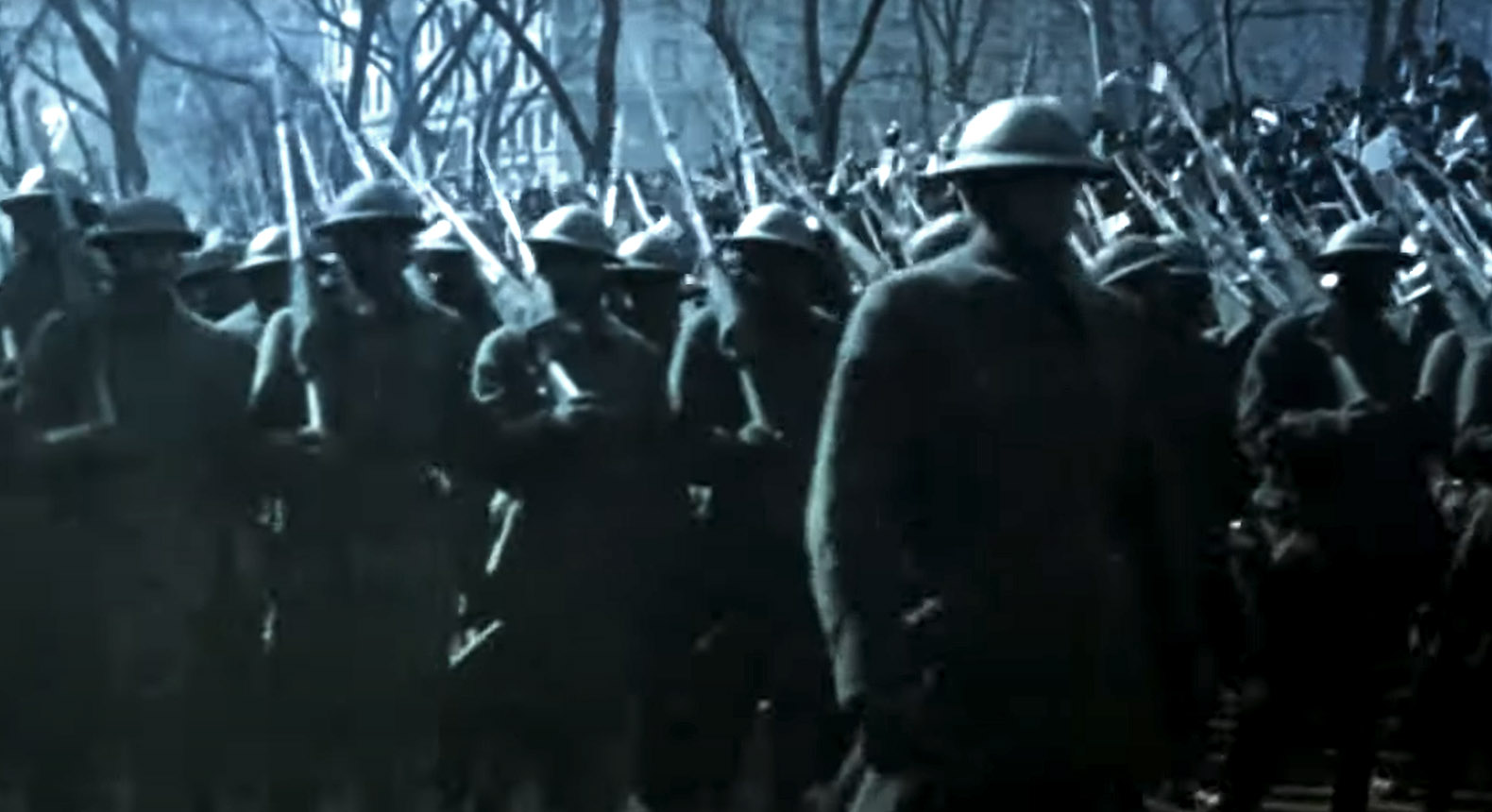Theodore Roosevelt on the Sinking of the Lusitania, 1915
April 14, 2020
On May 7, 1915, the British passenger ship Lusitania, sailing from New York to Liverpool, was torpedoed by a German U-boat. The Lusitania sank, killing 1,195 people on board, including 123 Americans. The incident created sharp reactions among Americans, many of whom believed that the United States should inflict an immediate reprisal upon Germany.
Read More
U.S. Enters World War I
April 14, 2020
Prior to the United States’ official entry into World War I in 1917, Americans debated their nation’s role in the conflict. During the period of neutrality,, both a preparedness movement and a peace movement emerged. Led by former President Theodore Roosevelt, the preparedness movement encouraged the United States to strengthen their military power following the outbreak of the Great War in 1914. Anti-war activists, like Jane Addams, Helen Keller, and William Jennings Bryan, protested the United States’ involvement and advocated for peace. In this activity, students consider the different perspectives Americans might have had on entering the Great War.
Read More
Food and World War I
April 14, 2020
[0:00:11] Theo Mayer: Welcome to the How World War I Changed America podcast series, sponsored by the Andrew W. Mellon Foundation. I'm Theo Mayer, your host for this episode. Our subject today is food in World War I. As a famous slogan and poster of the time stated, "Food will win the war." With us today to cover this topic is the series' regular host, but today a guest, Dr. Libby O'Connell. Dr. O'Connell is a very diverse historian and person, the former chief historian at the History Channel, appointed as one of the 12 US world War I Centennial…
Read More
America Goes to War – Part 2
April 14, 2020
[0:00:11] Speaker 1: Welcome to the How World War I Changed America podcast series sponsored by the Andrew W. Mellon Foundation host, Dr. Libby O'Connell. [0:00:26] Dr. Libby: Welcome, everyone. I'm Libby O'Connell. My guest today is professor Jennifer Keene, Dean of Wilkinson College and professor of history at Chapman University. Today our topic is world goes to war part two. Welcome, Jennifer. I'm so glad you could join us. [0:00:44] Jennifer Keene: Thank you for having me. [0:00:45] Dr. Libby: I'm going to jump right in and take a look at the assassination of Franz Ferdinand. We were talking…
Read More
America Goes to War – Part 1
April 14, 2020
[0:00:11] Speaker 1: Welcome to the How World War I Changed America podcast series sponsored by the Andrew W. Mellon foundation with host Dr. Libby O'Connell. [0:00:26] Libby O'Connell: I'm Libby O'Connell, and my guest the day is Jennifer Keene. Jennifer is the Dean of Wilkinson College and professor of history at Chapman University. Welcome, Jennifer. I'm so glad you can join us. [0:00:39] Jennifer Keene: Thank you so much for having me. [0:00:41] Libby O'Connell: All right. For today we have the first part of some questions about the world going to war. We need to have you setup…
Read More
America Goes to War
April 14, 2020
Video Discussion Questions Why did America remain neutral when the war first broke out in 1914?What are two major considerations for the U.S. in 1915?What was the gamble that Germany took in 1917 and why?Between 1917 and 1919, how much did the U.S. military grow? Define “conscription. ” What were the different jobs needed to supply the U.S. military?Name two ways that American entry help win the war for the Allies?
Read More
